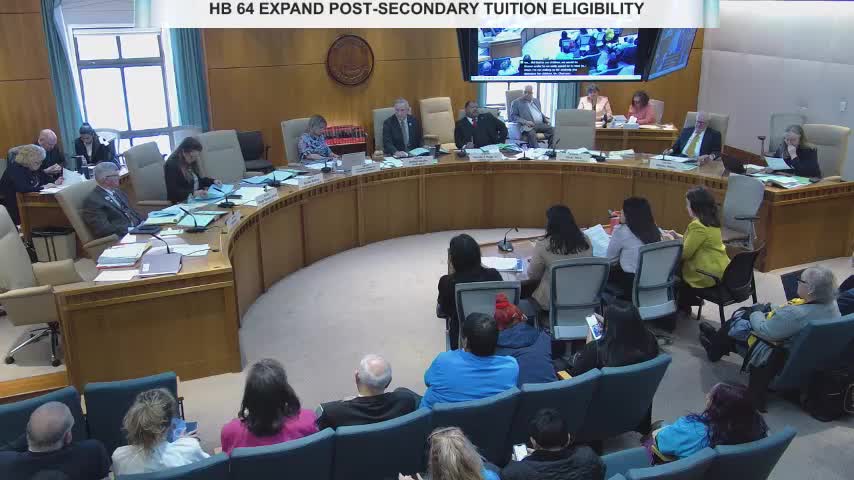Article not found
This article is no longer available. But don't worry—we've gathered other articles that discuss the same topic.
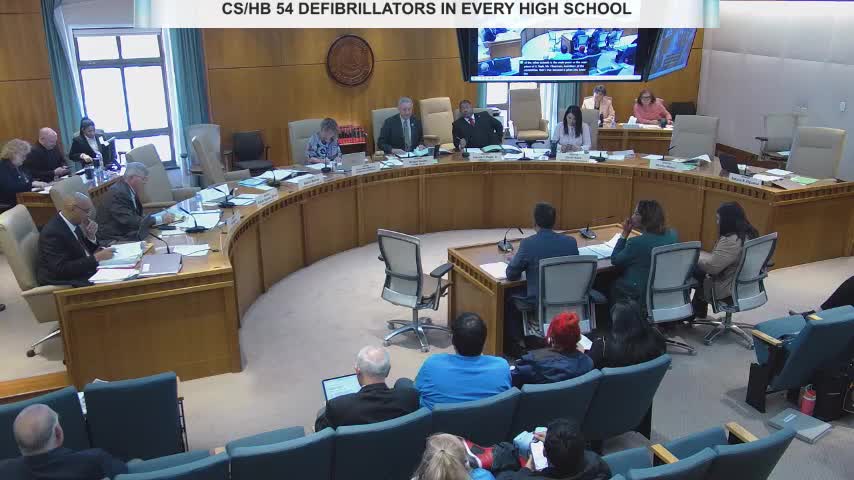
Committee advances bill to expand in‑state tuition eligibility for adult learners and immigrant taxpayers
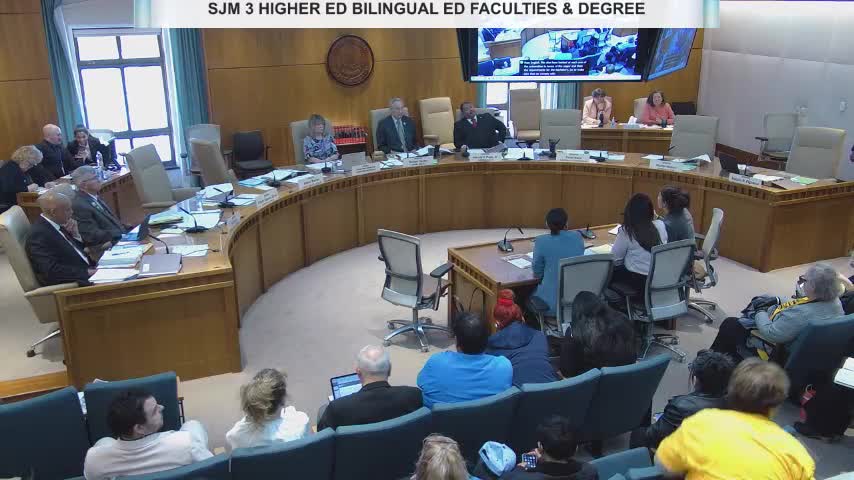
Committee approves bill to require AEDs and cardiac plans in schools, with phased implementation
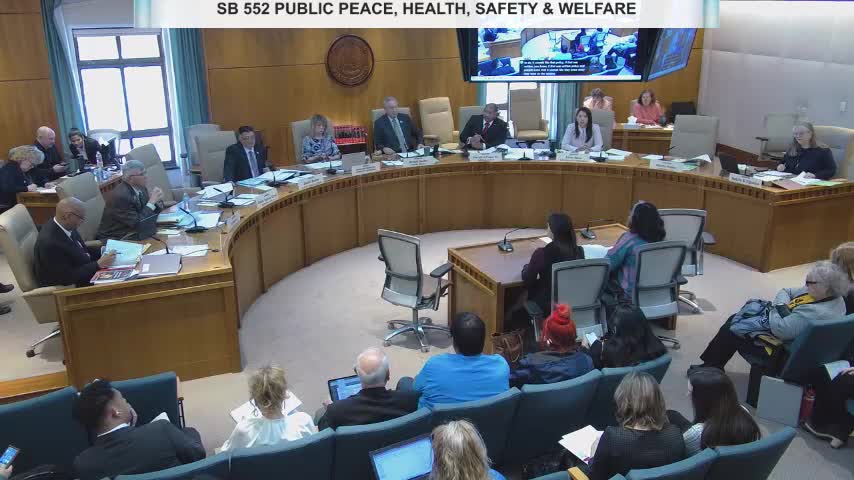
Committee endorses memorial urging joint bilingual education degree and supports workforce pipeline
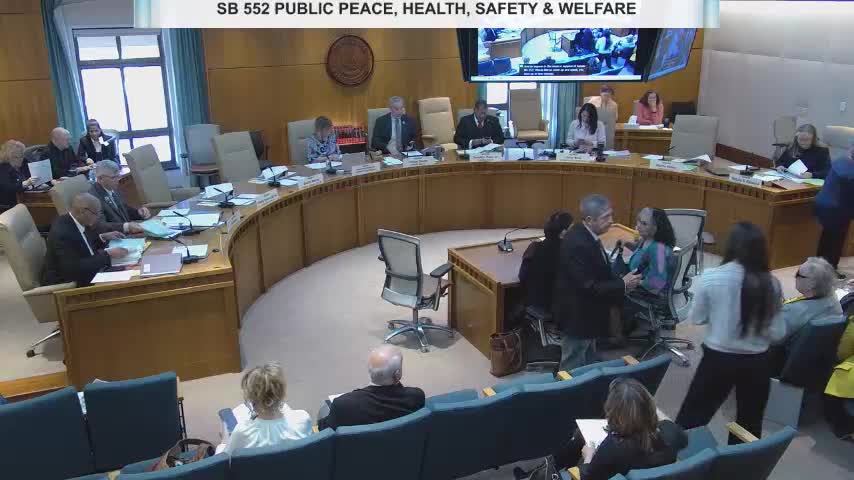
Committee backs bill to set school library review rules, protect librarians
